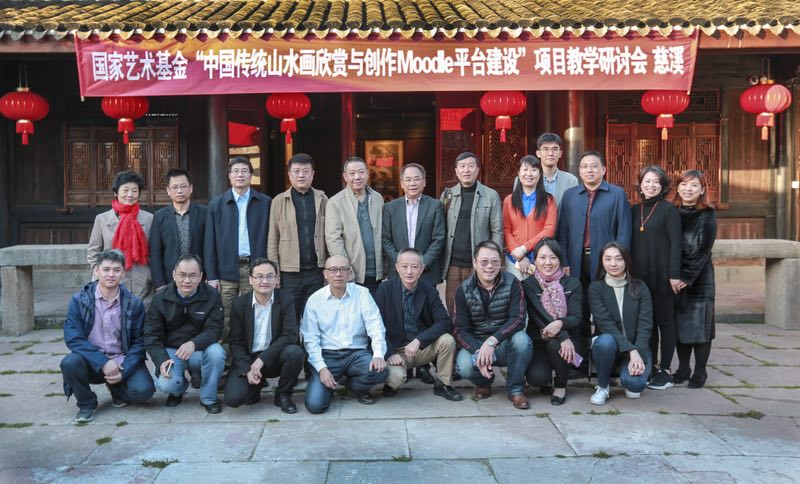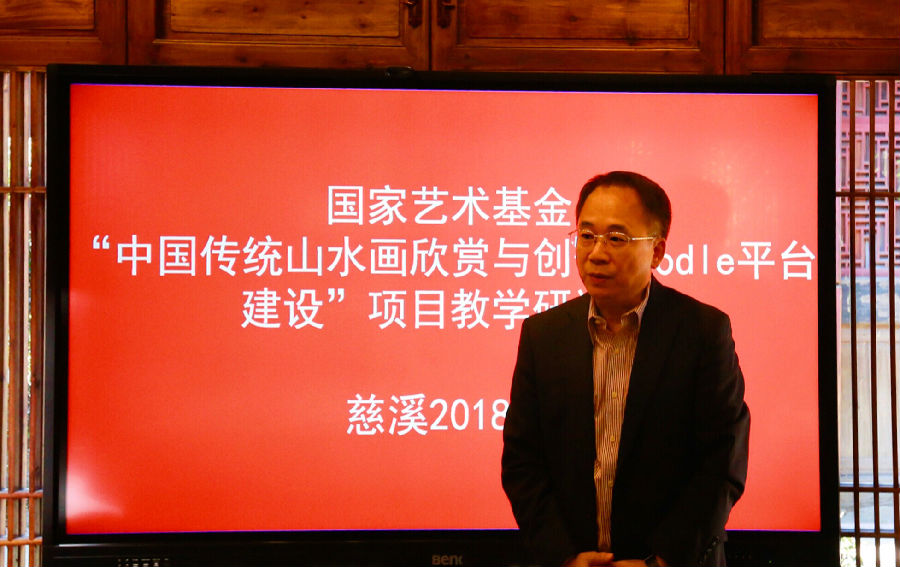 On 8 April , 2018, a seminar on the Appreciation and Creation of Traditional Chinese Landscape Painting & the MOODLE Platform Project of the Open University of China (OUC) was held in Cixi, Zhejiang Province. 17 people, including the OUC president, Yang Zhijian, members of the project, and the leaders of some OUC branches attended the conference, which was chaired by the head of the project, Tang Yingshan.
On 8 April , 2018, a seminar on the Appreciation and Creation of Traditional Chinese Landscape Painting & the MOODLE Platform Project of the Open University of China (OUC) was held in Cixi, Zhejiang Province. 17 people, including the OUC president, Yang Zhijian, members of the project, and the leaders of some OUC branches attended the conference, which was chaired by the head of the project, Tang Yingshan.


According to Yang Zhijian, the Appreciation and Creation of Chinese Traditional Landscape Painting & the MOODLE Platform Project are the first China National Arts Fund projects applied for by the OUC, and are in line with the focus of General Secretary Xi Jinping on developing Chinese traditional culture, which gives them great significance. China has a rich traditional culture. Art is the best means of disseminating it, and the OUC takes on the responsibility for doing so. We hope that Chinese traditional landscape painting can spread and flourish among its students. Yang Zhijian also pointed out that the OUC attaches great importance to the development of non-degree education, and that the project highlights this. Finally, he stated his hope that it would help facilitate cooperation within the OUC system and the integration of online and offline teaching, and that the successful implementation of the project, which is based on the China National Arts Fund platform, would set a new benchmark for online art education at the OUC.
The experts in attendance held a discussion and put forward suggestions. The course lecturer of the project, Yu Shao Ping, said that, with increasing public attention being given to Chinese traditional landscape painting, teaching needs to become more scientific in order to meet student needs. At the same time, while teaching landscape painting, the techniques used to create it must be clarified in order to help make it accessible.
It was pointed out at the meeting that the project team will summarise the opinions of various sides, improve operations, and develop online courses for nearly 1,200 people throughout the country, while launching offline courses in Harbin, Hangzhou and Cixi, promoting the integration of the two types of course, and striving to explore new ways to use modern online education to spread the appreciation of Chinese traditional painting.
By the OUC Faculty of Art Education